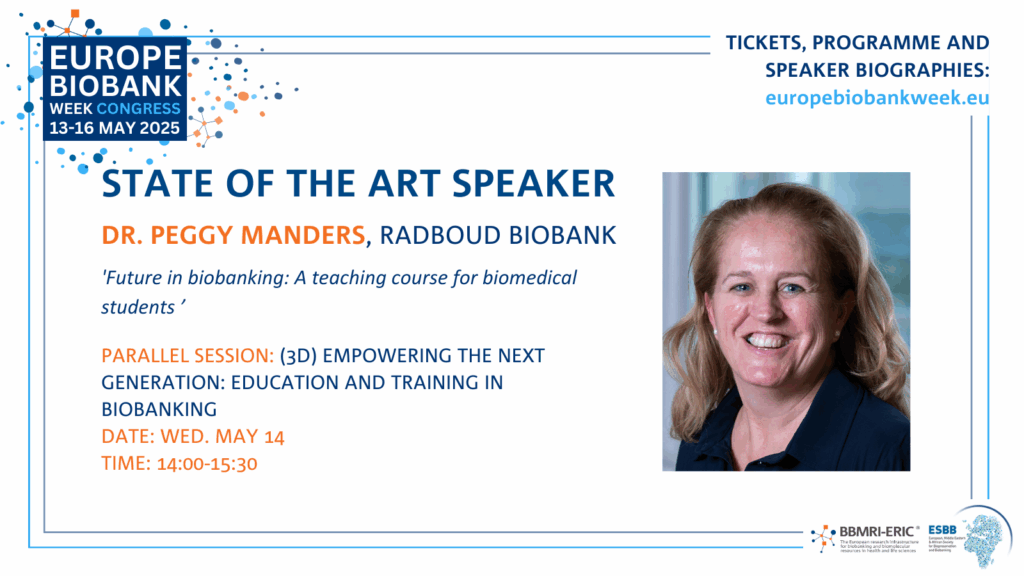
#EBW25 Previews: State-of-the-art speaker for 3D ‘Empowering the next generation: Education and training in biobanking’
Dr. Peggy Manders, Radboud Biobank, will be the state-of-the-art speaker leading the panel session ‘Empowering the next generation: Education and training in biobanking’. We have profiled her biography and abstract here.
Dr. Peggy Manders
Dr. Peggy Manders is trained in epidemiology (biomedical sciences) and received a PhD on biomarker research in breast cancer. She has been active in the field of biobanking since 2008 when she was involved with the national biobank collection Hereditary Colorectal Cancer. Since its founding in 2012, she has worked at the Radboud Biobank in Nijmegen, the Netherlands. In 2020 she became the head of the central biobank facility of the Radboud University Medical Center.
Dr. Manders is also co-lead of the Health-RI theme Biobanks & Collections and works on the Health-RI mission to make health data and biomaterials FAIR (Findable, Accessible, Interoperable, Reusable) for research and innovation.
Abstract: Future in biobanking: A teaching course for biomedical students
Biobanks form the bridge between clinical research and clinical care and are an essential facility in a university medical center. However, this is uncharted territory for many researchers and clinicians.
To prepare students for a future in biobanking, the Radboud Biobank in Nijmegen, the Netherlands, has set up an annual 2-week course to provide biomedical bachelor students with insight into the many facets of initiating a biobank collection from an interdisciplinary perspective. The course consists of interactive lectures and self-study assignments on biobanking and related topics, i.e. medical-ethical aspects, relevant pre-analytical aspects in clinical chemistry, pathology and genetics, and data management.
To add practical and real-time knowledge, students are given a venipuncture course plus a tour of the lab including the central storage facility. Content experts present how their two long-standing collections are being utilised to improve medical care. The course focuses on reliability, comparability, generalisability and reproducibility of collection and handling of biological samples for future use.
During the course, students are required to write a protocol for initiating a de novo disease-specific biobank collection. Assessment of the module is based on a written test (25%), protocol (50%) and a pitch about this protocol (25%).
So far, 90 students have completed the course. The education is positively assessed by participating students: i.e. the variety of facets as well as its applicability to setting up a biobank in practice are appreciated.
Session details
- Date: Wednesday 14 May
- Time: 14:00-15:30